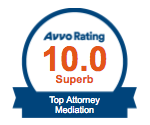Businesses need to share documents quickly, and need to do so via a remote. However, they also must comply with privacy laws and prevent hackers from breaking into the walls. A virtual dataroom (VDR) is a secure secured storage and sharing area for sensitive documents. It is accessible from any device with an internet connection, and it comes with features for efficient management, powerful search functions and reports of activity. A reliable VDR provider provides multiple layers of security, including multifactor authentication as well as granular permissions that allow users to access folders and individual documents for a short period of duration.
The BFSI sector is the biggest market segment for VDR adoption. This sector is characterized by complicated and sensitive transactions that require the use of VDRs in order to facilitate due diligence processes, regulatory submissions, and M&A. The BFSI sector also focuses on data security, confidentiality and privacy, which drives demand for VDR solutions.
Cloud-based VDRs dominate the market, offering flexible storage options and a pay-as you-go pricing model which helps reduce upfront infrastructure costs. They also come with an easy-to-use, collaborative interface that reduces learning curves. Cloud-based VDRs can be accessed by anyone who has an internet connection. This makes them a popular choice for remote teams and for global work. Furthermore they can be integrated with other cloud-based services for increased ease of use and familiarity. This is particularly https://itcounts.org.uk/virtual-data-rooms-the-key-to-unlocking-your-businesss-full-potential helpful for business owners who have been uploading files via consumer file-sharing applications as well as email.


